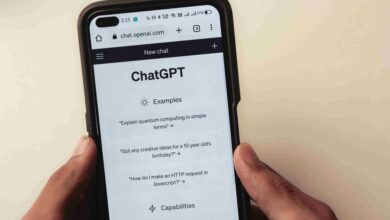ChatGPT and Mental Health: Supportive Conversations and Resources

In an increasingly digitized world where technology permeates almost every aspect of our lives, AI has proven to be a highly promising asset in supporting mental health and well-being. Among these AI applications, ChatGPT—a sophisticated language model developed by OpenAI—stands out as a unique platform that fosters supportive conversations and provides valuable resources for those navigating mental health challenges.
1. Understanding ChatGPT
ChatGPT is an AI-powered chatbot designed to engage in natural and intuitive text-based conversations with users. Built upon advanced deep learning algorithms, ChatGPT can produce human-like text, making interactions feel authentic.This technology enables ChatGPT to offer a range of services, from answering questions and providing information to engaging in empathetic dialogue.
2. The Role of ChatGPT in Mental Health
1. Non-Judgmental Resource:
ChatGPT serves as a non-judgmental resource for individuals dealing with mental health concerns. Unlike human interactions that may carry social stigma or fear of judgment, ChatGPT provides a safe and confidential space where users can express themselves openly.
2. Readily Available Support:
ChatGPT’s availability 24/7 makes it a convenient resource for individuals needing immediate support or information related to mental health. This accessibility can be especially valuable during times when traditional support services are unavailable or difficult to access.
3. Information and Guidance:
Users can engage ChatGPT in conversations about mental health to gather information and receive guidance on various topics such as symptoms of mental health disorders, self-care strategies, or seeking professional help. ChatGPT can provide accurate and helpful resources based on established guidelines.
4. Articulating Thoughts and Feelings:
Chatting with ChatGPT can assist users in articulating their thoughts and emotions. By expressing their feelings in a text-based conversation, users may find it easier to clarify and understand what they are experiencing, which can be a helpful step towards self-awareness and reflection.
5. Insights and Coping Strategies:
ChatGPT can offer insights into emotional patterns and suggest coping strategies based on established psychological principles. This can empower users to develop healthier ways of managing stress, anxiety, or other mental health challenges.
6. Immediate Support:
In urgent situations where immediate support is needed,
can provide reassurance and practical advice while encouraging users to seek professional help when necessary. This immediate support can be critical in crisis situations.
7. Accessibility and Approachability:
For individuals who may feel intimidated by or reluctant to seek help from human professionals, ChatGPT offers a more approachable entry point into exploring mental health topics and accessing support.
3. Features and Benefits
ChatGPT is an effective mental health support resource with unique capabilities:
1. Anonymous Support:
Users can engage with ChatGPT anonymously, which can be particularly beneficial for those who prefer privacy or are hesitant to discuss their concerns with others.
2. Empathetic Conversations:
ChatGPT is programmed to respond with empathy and sensitivity, providing a compassionate virtual companion for individuals experiencing emotional distress.
3. Information and Resources:
ChatGPT can deliver curated information on mental health topics, recommend self-help techniques, and suggest appropriate resources or helplines based on individual needs.
4. 24/7 Availability:
Unlike traditional support services with limited operating hours, ChatGPT is accessible round the clock, making it a reliable source of support during late nights or weekends.
4. Using ChatGPT Responsibly
1. Understanding Limitations:
ChatGPT, despite its advanced capabilities, is not a replacement for professional therapy, counseling, or medical advice. It lacks the ability to diagnose mental health disorders or provide personalized treatment plans tailored to individual needs. Users should be aware that ChatGPT’s responses are based on patterns in data and algorithms rather than clinical expertise.
2. Seeking Professional Help:
Individuals facing severe or urgent mental health issues should prioritize seeking help from qualified professionals, such as licensed therapists, psychologists, or psychiatrists. ChatGPT can offer general information and support, but it cannot provide the level of care and intervention required for serious mental health conditions.
3. Using ChatGPT as a Complementary Resource:
ChatGPT should be viewed as a complementary resource to professional mental health services. It can assist users in gathering information, exploring coping strategies, and offering general support. However, any advice or guidance provided by ChatGPT should be validated and supplemented by consulting with trained professionals.
4. Recognizing Emotional Support vs. Clinical Care:
ChatGPT can provide emotional support by engaging in empathetic conversations and offering encouragement. However, it’s important to differentiate between emotional support and clinical care. Users should be encouraged to seek clinical interventions when necessary, especially for diagnosing and treating mental health disorders.
5. Encouraging Responsible Use:
Users interacting with ChatGPT for mental health support should be encouraged to use the platform responsibly. This includes being aware of ChatGPT’s limitations, avoiding reliance solely on its responses for serious issues, and maintaining open communication with healthcare providers or trusted individuals.
6. Raising Awareness about Crisis Resources:
ChatGPT conversations about mental health should include information about crisis resources and helplines that individuals can contact in emergencies. Encouraging users to have access to these resources ensures they have immediate support when needed.
7. Promoting Ethical Use:
Developers and providers of ChatGPT services should prioritize ethical considerations in designing and deploying AI technologies for mental health support. This includes safeguarding user privacy, promoting transparency about the capabilities and limitations of ChatGPT, and continuously improving the technology based on user feedback and ethical guidelines.
5. OpenAI’s Commitment to Ethical AI
1. User Safety and Privacy:
OpenAI places a strong emphasis on user safety and privacy in the development and deployment of ChatGPT. They implement safeguards to protect users from harmful content and ensure that personal information shared during interactions is handled securely and responsibly. This includes adopting robust data protection measures and adhering to established privacy standards.
2. Responsible Use and Guidelines:
OpenAI is committed to promoting responsible use of AI technologies like ChatGPT. They establish clear guidelines and recommendations for users and developers to ensure that the chatbot is used ethically and appropriately. This includes educating users about the limitations of ChatGPT and encouraging responsible interactions.
3. Ethical Principles in AI Development:
OpenAI integrates ethical principles into the design and development of ChatGPT. This involves considering societal impacts, fairness, transparency, and accountability in AI decision-making processes. OpenAI strives to mitigate potential biases and ensure that ChatGPT upholds ethical standards in its responses and interactions.
4. Continuous Improvement and Testing:
OpenAI engages in continuous improvement and rigorous testing of ChatGPT to enhance its effectiveness and reliability as a mental health support tool. This includes refining algorithms, expanding training datasets, and incorporating user feedback to address concerns and improve performance over time.
5. Transparency and Accountability:
OpenAI is transparent about the capabilities and limitations of ChatGPT, providing users with clear information about how the technology works and what to expect during interactions. They also take accountability for any issues that arise, promptly addressing concerns and taking corrective actions as needed.
6. Collaboration and Engagement:
OpenAI collaborates with experts in AI ethics, psychology, and mental health to ensure that ChatGPT aligns with best practices and ethical guidelines in the field. They actively engage with stakeholders, including users, researchers, and policymakers, to foster dialogue and promote responsible AI innovation.
7. Commitment to Impact Assessment:
OpenAI conducts impact assessments to evaluate the social, ethical, and psychological implications of deploying ChatGPT as a mental health support tool. This includes monitoring outcomes, studying user experiences, and adapting strategies to maximize benefits and minimize risks associated with AI-driven interventions.
Conclusion: Harnessing AI for Mental Well-being
In conclusion, ChatGPT represents a promising frontier in leveraging AI for mental health support. By providing a non-judgmental and accessible platform for conversations about mental health, ChatGPT contributes to reducing stigma and promoting emotional well-being in today’s digital age. As technology continues to evolve, thoughtful integration of AI tools like ChatGPT into mental health care can complement traditional services and reach individuals who might otherwise go without support. However, it’s important to view ChatGPT as a supportive resource within a broader framework of mental health care, emphasizing the importance of human connection and professional intervention when needed.
Go to www.intogeeks.com for more information about ChatGPT and AI.




